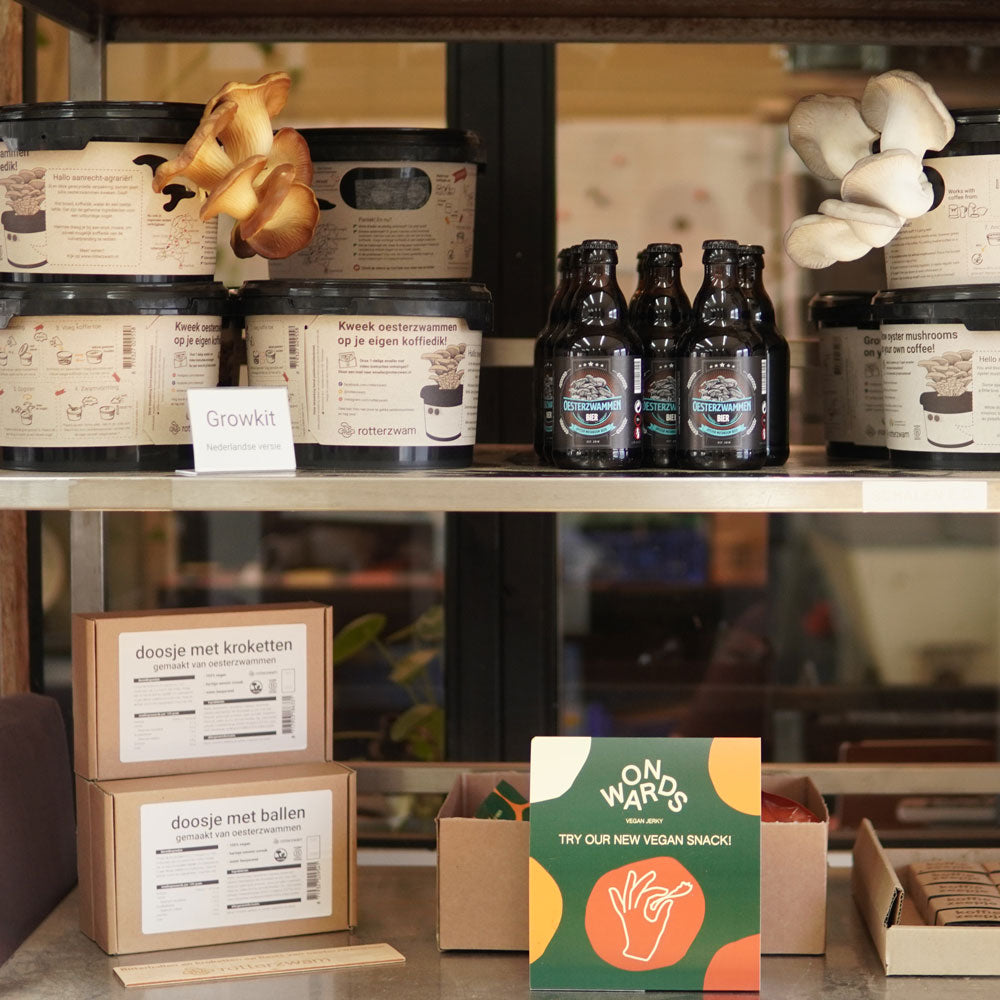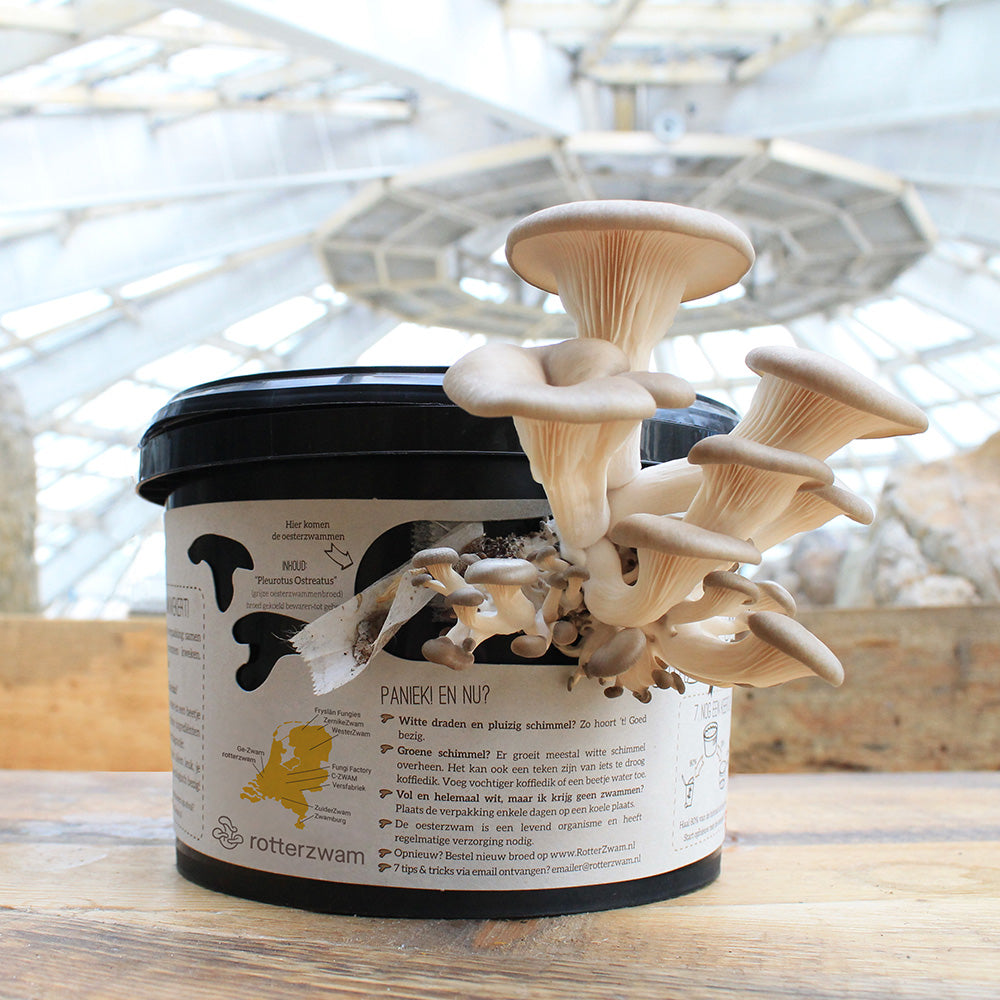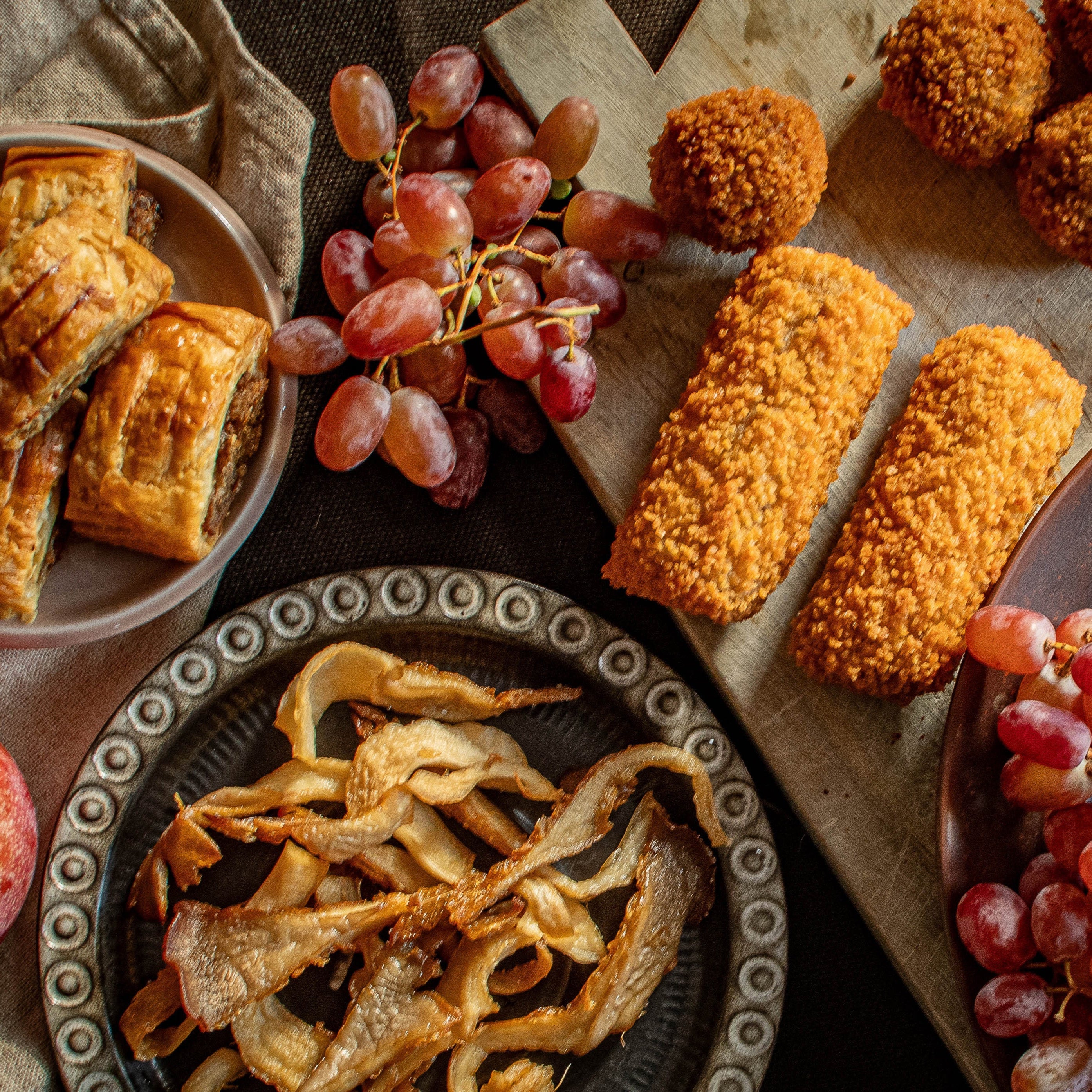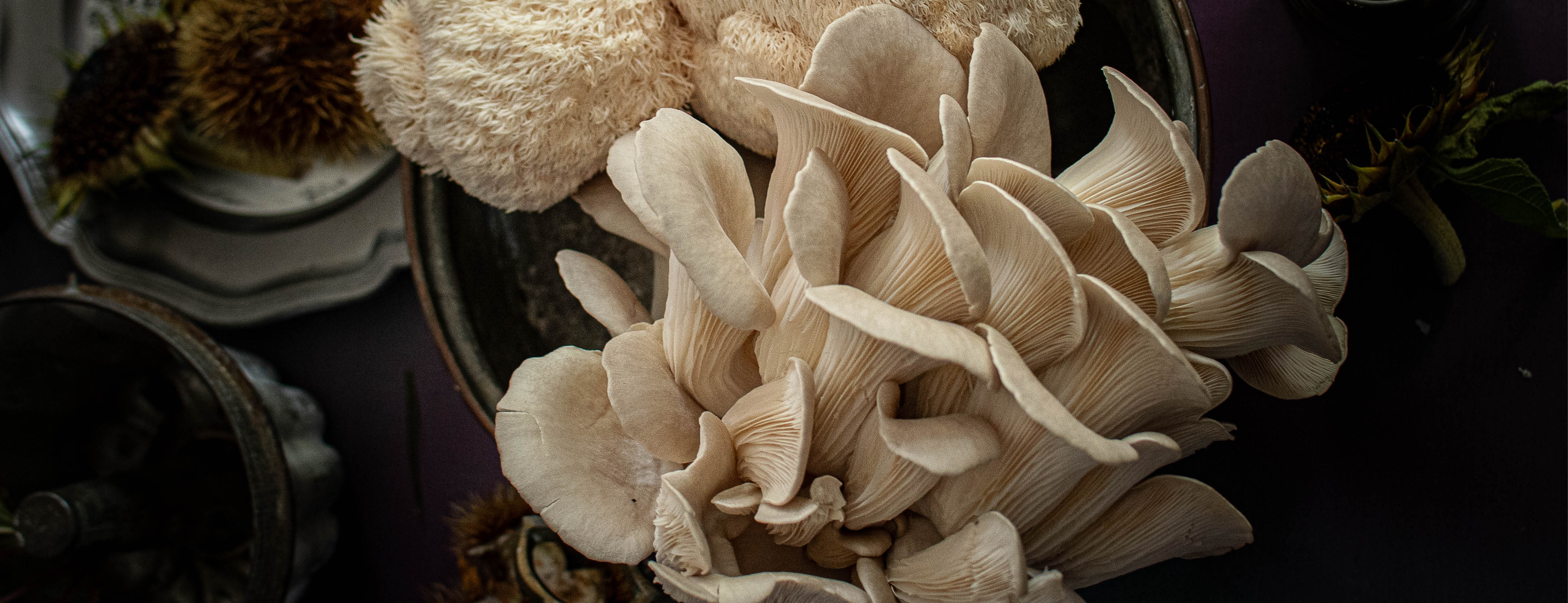more than mushrooms
rotterzwam grows circular mushrooms on urban waste flows, thus connecting city, fungus, and system.
> 419.840 kg
coffee grounds rescued
> 26.693 kg
oyster mushrooms grown
> 144.164 kg eq
avoided CO2 emissions
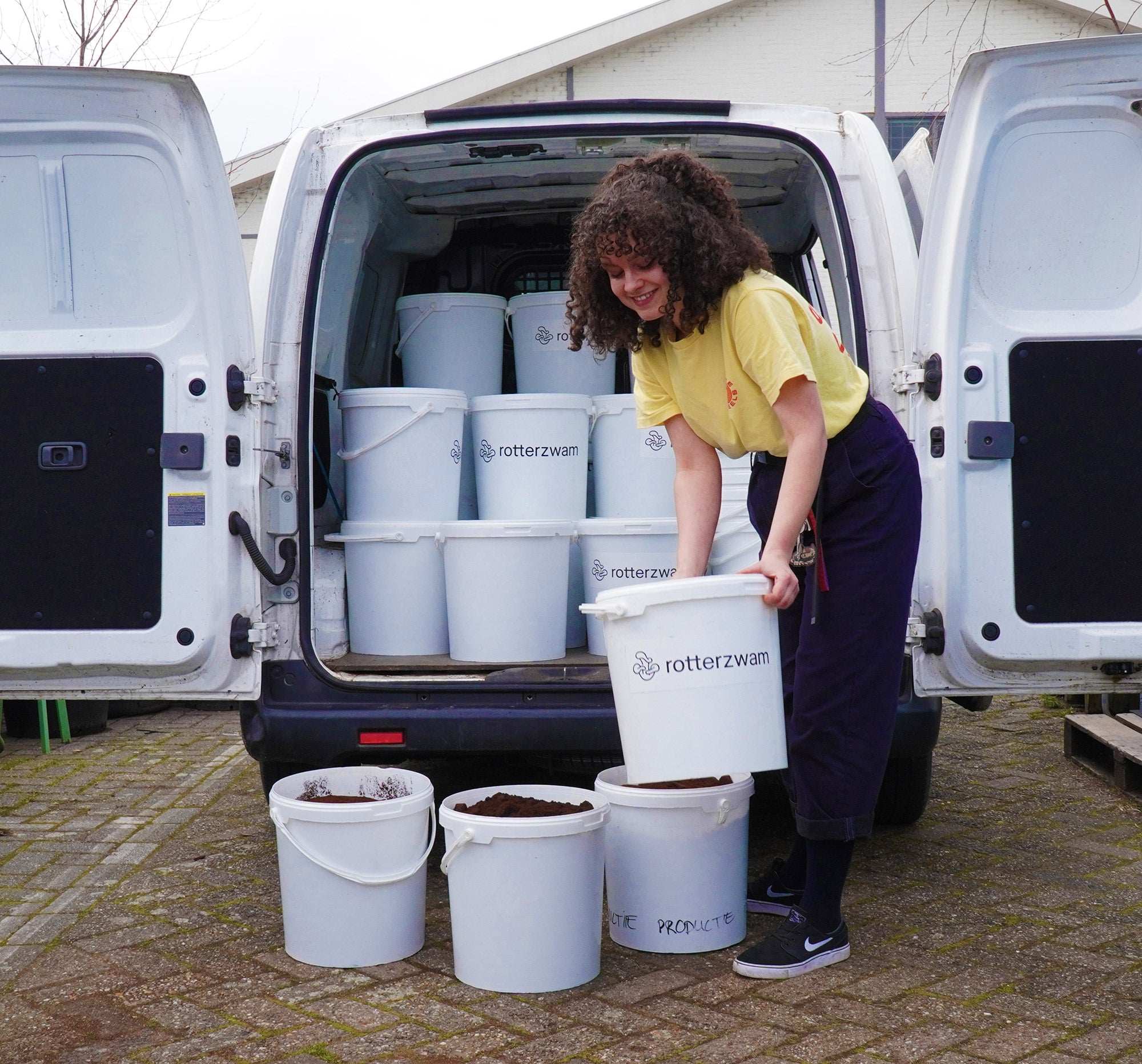
Waste as a breeding ground for change
Rotterzwam saves coffee grounds from being incinerated. We strive to use this valuable resource for mushroom cultivation. Any remaining or old coffee grounds are fermented or composted.
Contribute with your company or organization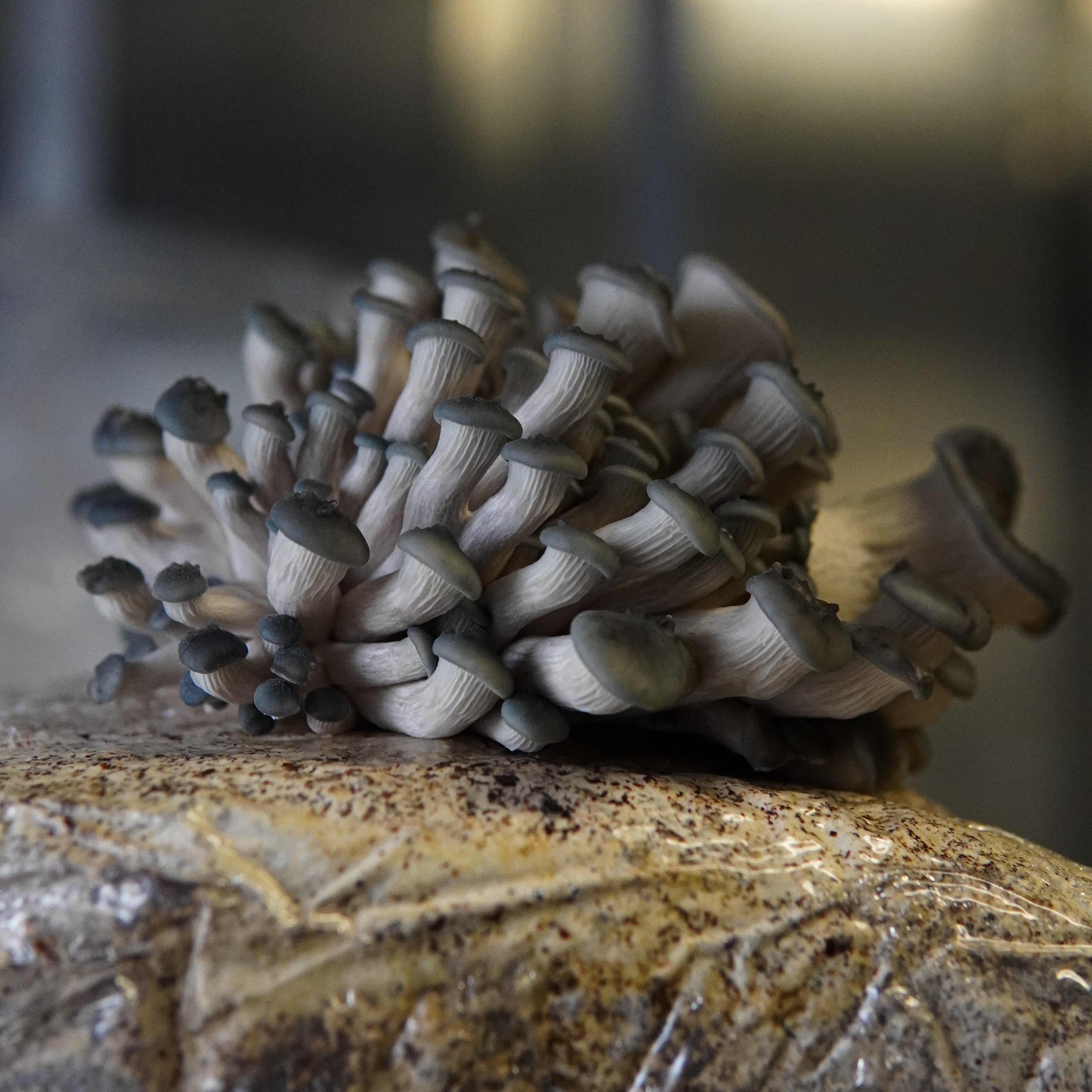
Circular mushroom cultivation
At its nursery in Schiehaven in Rotterdam, rotterzwam processes various urban waste streams, such as coffee grounds, brewers' grains, and wood chips, for research and cultivation of various mushrooms.
Come by for a workshop or tour, or to pick up fresh, local and circularly grown mushrooms!
Workshops & tours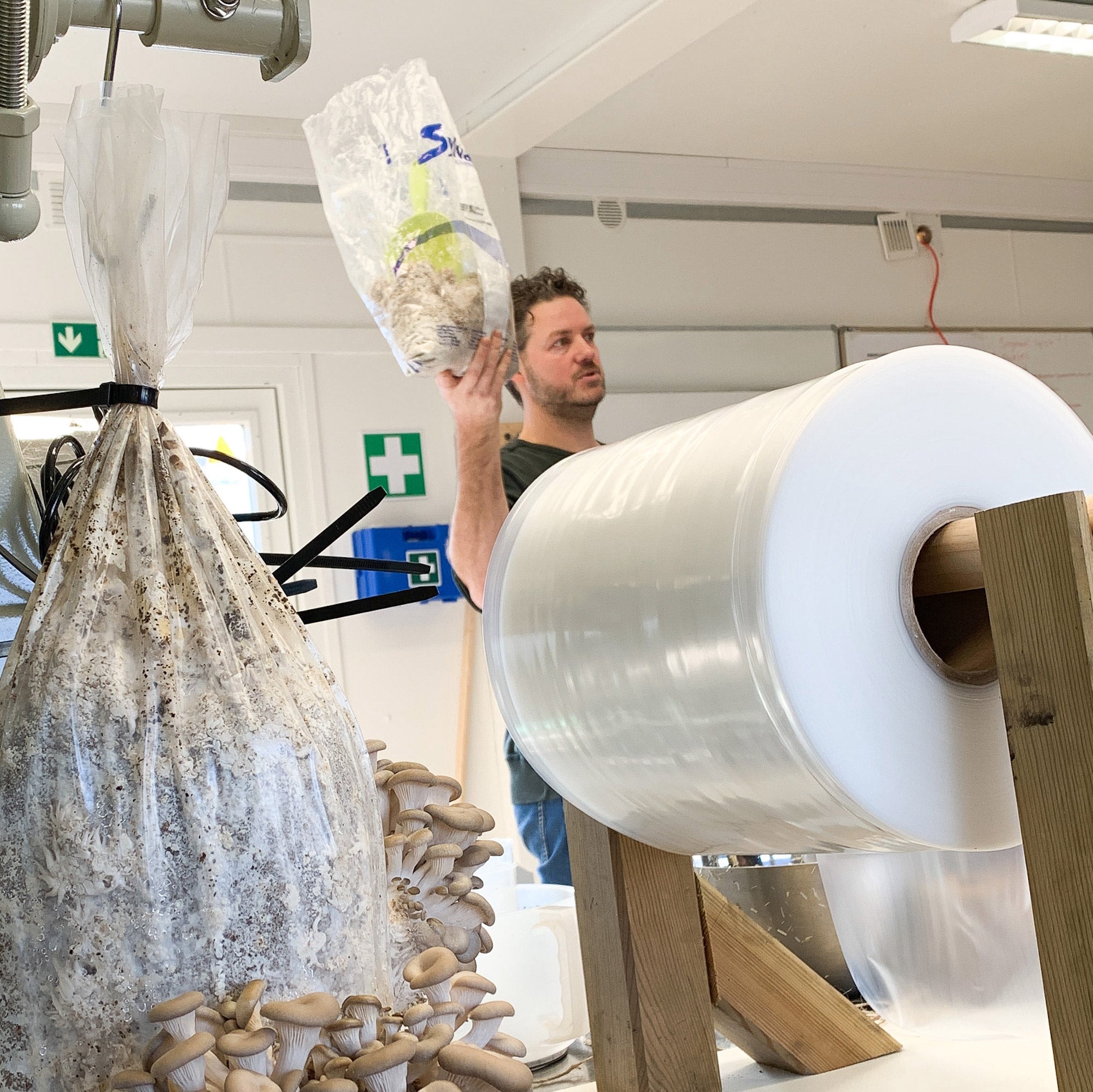
Learn everything about growing circular mushrooms
At rotterzwam we believe that sharing our knowledge and collaboration is the key to a green, circular future. That's why rotterzwam offers a divers educational program, ranging from a short workshop or tour to a complete training program with online and offline possibilities. Whether you want to be an intern, volunteer or trainee: all mushroom lovers are welcome to come learn at the rotterzwam mushroom farm.
Zo delen wij onze kennis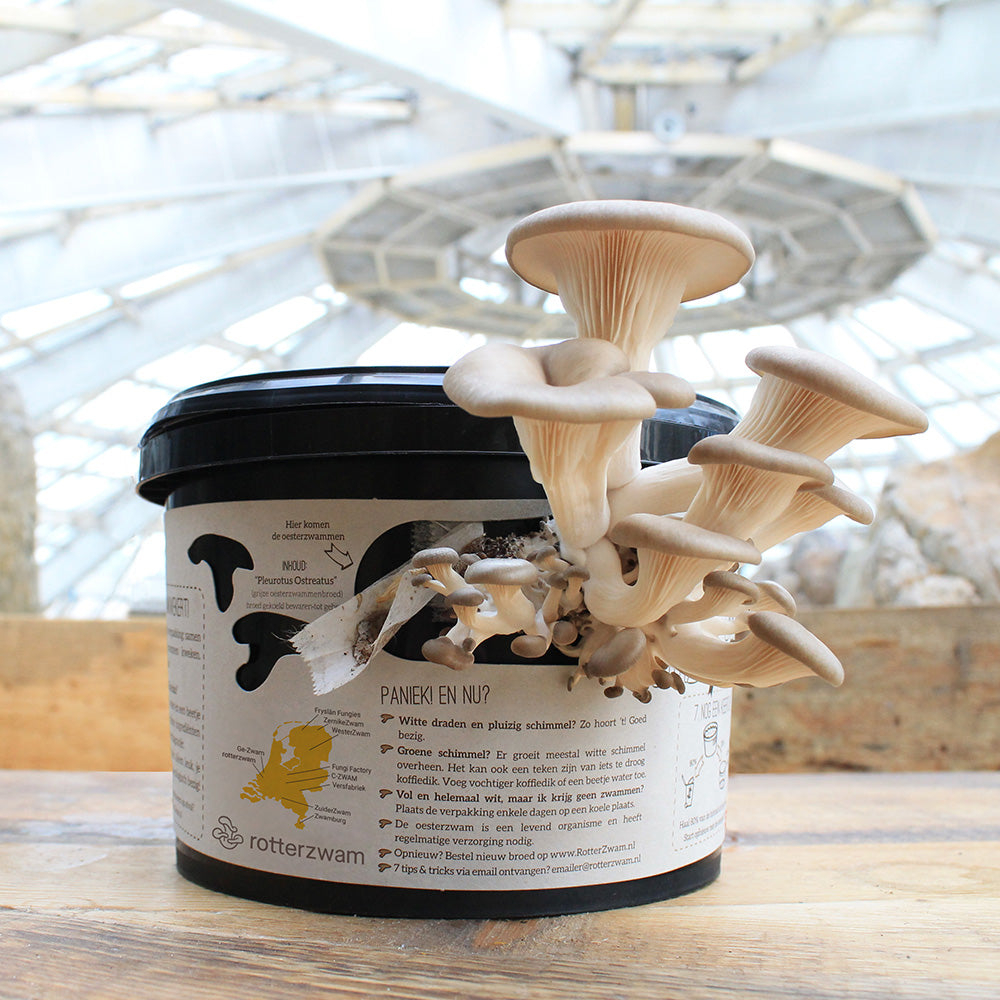
Growing your own mushrooms
At rotterzwam, we believe that knowledge sharing and collaboration are the path to a green, circular future. That's why we offer various educational programs.
Want to contribute to the circular economy at home? You can! With the rotterzwam grow kit, you'll learn how to grow oyster mushrooms on your own coffee grounds.
The rotterzwam growkit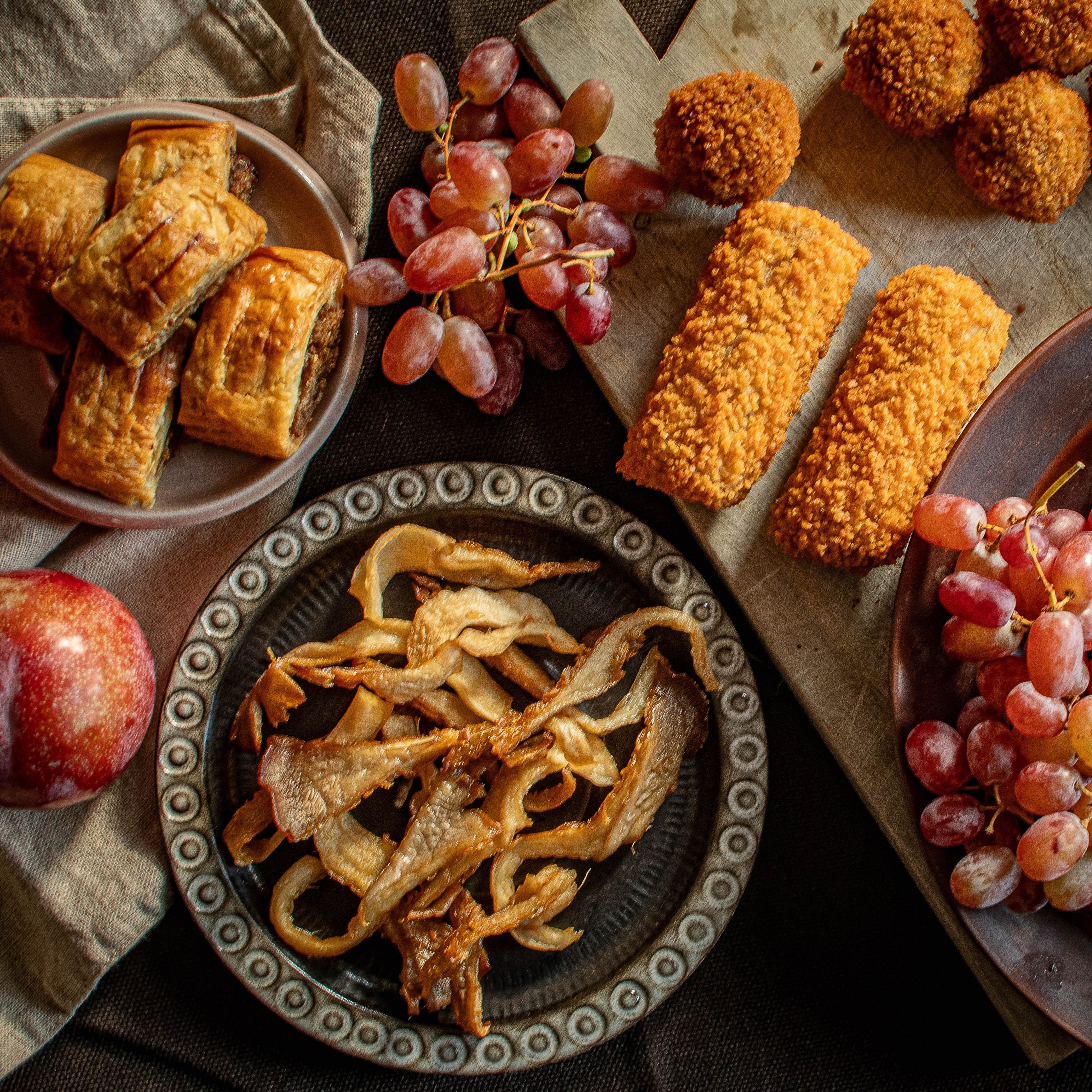
Try the rotterzwam taste and vision
We are making urban waste streams restaurant-worthy again by turning our oyster mushrooms into delicious products such as bitterballen, croquettes, sausage rolls, dumplings, shoyu-sauce and ravioli.
You can taste Rotterzwam products at (company) restaurants and catering partners who, like Rotterzwam, believe in local, circular and plant-based food.
Rotterzwam in restaurants
rotterzwam is growing

